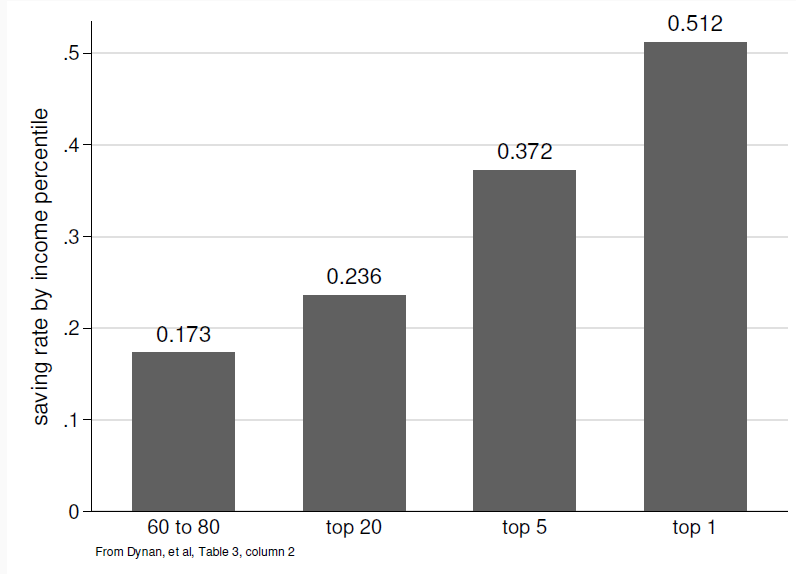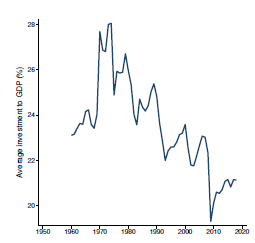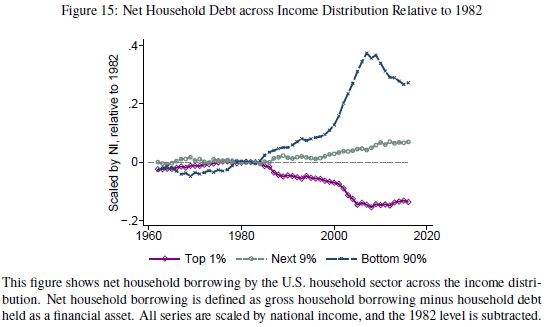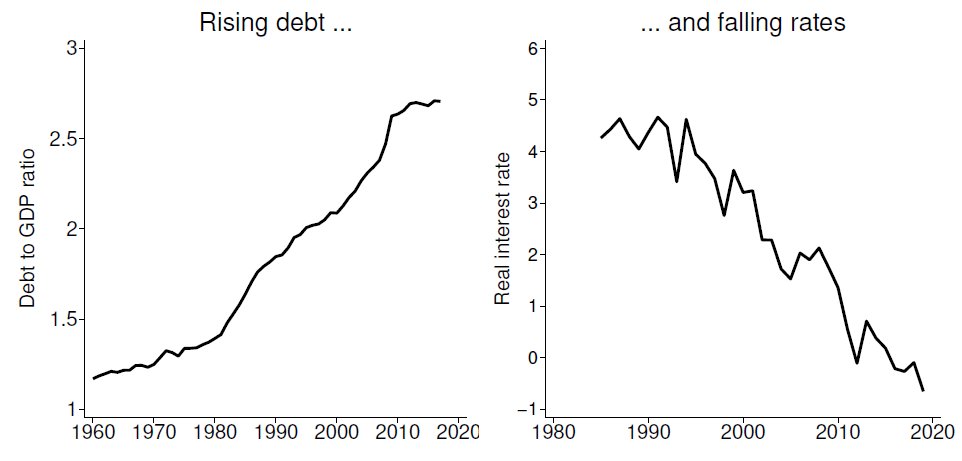Some people think there is a trade-off between inequality and efficiency (or growth). The argument says that while we may not like inequality, higher inequality is necessary for growth.
1/
Hence if we shift a larger share of dollars towards the rich, they can invest more money into job creation, leading to higher growth.
Is this hypothesis correct?
2/
@PikettyLeMonde, Saez and @gabriel_zucman have shown that the share of dollars going to the very rich (top 1%) has close to doubled since 1980.
3/
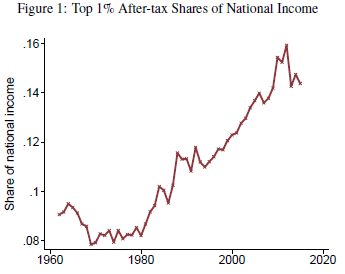
(i) Larger share of the income goes to the top 1%
(ii) We know the top 1% save at a much higher rate.
(iii) Hence it must be true that U.S. total saving, and hence investment went up since 1980.
WRONG!
While (i) and (ii) are true, (iii) does not follow!
5/
Top 1% have been saving more and more, *but* the financial system has *not* converted those additional savings into investment.
Instead more and more of top 1% savings have been channeled back to the rest of the economy as debt to finance consumption.
7/
"Fine. Rising inequality generated more debt so non-rich could borrow from the rich and consume. But so what? What does any of this have to do with growth?".
This is where the plot thickens.
9/
But paying additional interest reduces their disposable income and hence spending.
10/
Unfortunately, no. Remember the rich have very high saving rate.
So now the economy is in danger of getting into a demand-driven recession!
Unless ....
11/
Interest rates cannot fall beyond a certain point. More generally, very low interest rates start creating all sorts of problems.
This is when high inequality becomes a noose around the neck. We need to cut the noose off.
13/
Please join me on Saturday April 25th to continue the conversation. It is for a good cause - helping those in need.
So please do sign up if you can. Thanks!

